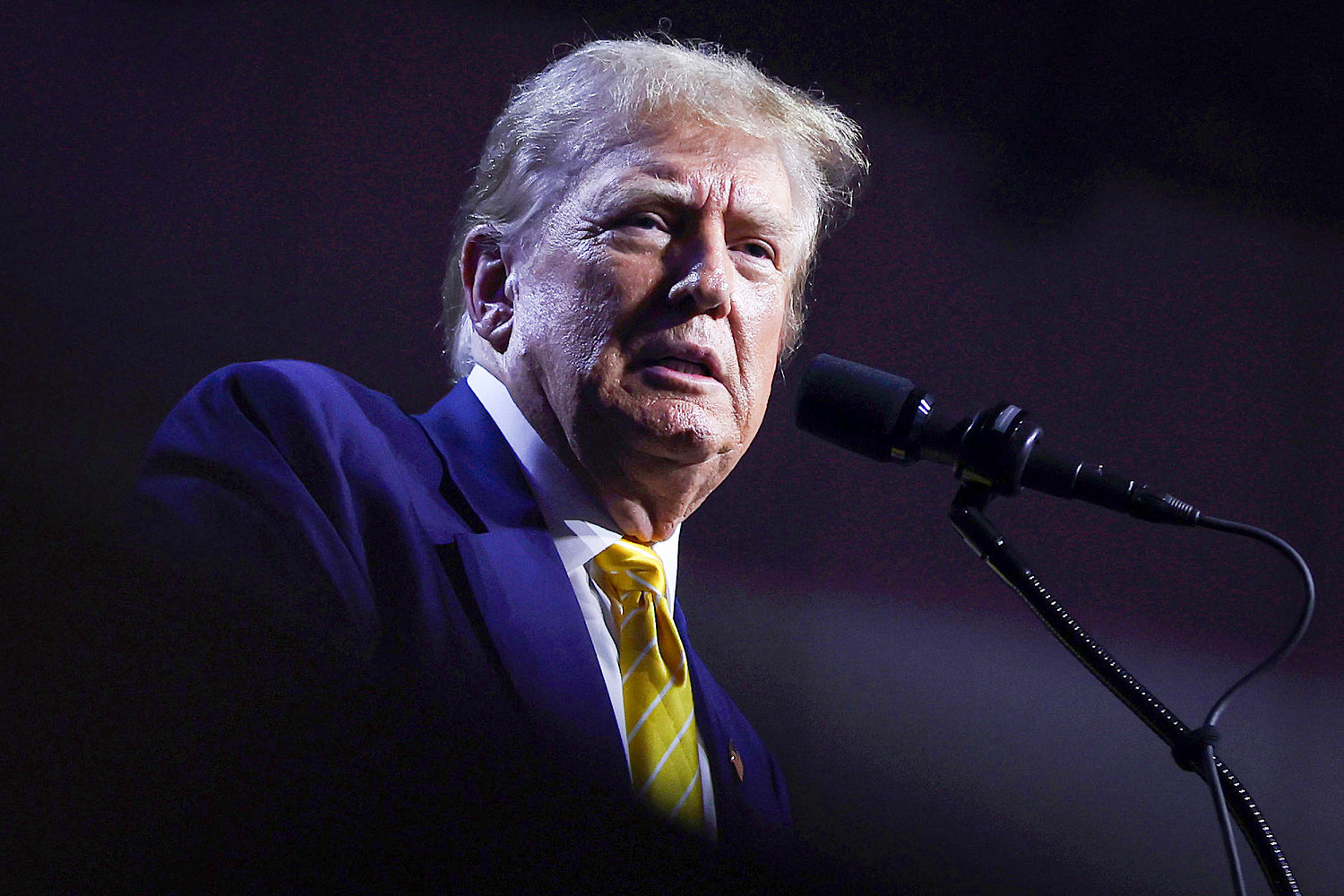
DETROIT — Former President Donald Trump’s campaign launched its Black voter coalition group Saturday, the clearest effort yet by Trump to target a voting bloc that has overwhelmingly supported Democrats in past elections but has been unusually open to Trump in public polling.
The announcement came ahead of a community roundtable event at 180 Church, a predominantly Black worship center in Detroit. Among the Black Republicans present at the Trump event were former Secretary of Housing and Urban Development Ben Carson and Reps. Byron Donalds, R-Fla., and John James, R-Mich.
“Historic rates of Black voters now support President Trump, and the reason is simple: Black voters know that President Trump is the only presidential candidate who can deliver results on day one because he already has,” the Trump campaign said in statement heralding the launch of its “Black Americans for Trump” effort, touting unemployment rates and household income levels for Black people during his presidency.
The new Trump coalition group marks an attempt by Trump to mirror the Black outreach efforts of President Joe Biden’s campaign, which so far has invested millions of dollars into hiring, organizing and paid media solely designed to engage its Black voting base.
The Biden-Harris campaign launched its own Black voter coalition group, “Black Voters for Biden-Harris,” in Philadelphia earlier this month. The event marked a rare joint appearance by both Biden and Vice President Kamala Harris, both of whom credited Black voters for being crucial to their 2020 victory.
At that event, Biden and Harris sought to frame Trump as being a threat to Black American progress and ticked through several of Trump’s past controversies.
“What do you think he would have done on Jan. 6, if Black Americans had stormed” the Capitol, Biden said at the event. “I don’t think he’d be talking about pardons. This is the same guy who wanted to tear gas you, as you peacefully protested George Floyd’s murder. The same guy who still calls the Central Park Five guilty even though they’re exonerated.”
In a statement, Biden-Harris spokesperson Jasmine Harris said, “Donald Trump thinks the fact that he has ‘many Black friends’ excuses an entire lifetime of denigrating and disrespecting Black Americans, but Black voters know better — and Trump’s eleventh hour attempt at Black ‘outreach’ isn’t fooling anyone.”
In a recent television ad, the Biden campaign also suggested Trump was an “enemy” to Black voters. It has referred to the former president as “a textbook racist who disrespects and attacks the Black community every chance he gets.”
Yet Trump, during the Detroit roundtable, framed Biden as the threat to Black Americans, referencing his role authoring the 1994 crime bill.
“He walks around now talking about the Black vote — he’s the king of the ‘super predators,’” Trump said. “He wrote the 1994 crime bill that you all talk about so much, I guess everybody here knows about that, especially if you happen to be Black.”
Supporters of the former president say the current political environment is conducive to Trump making inroads with Black voters, and the launch of Trump’s coalition group is the latest effort to dig in with younger, Black men in particular, who appear more willing to hear his message.
Trump’s Black outreach this election cycle began in February when he headlined the Black Conservative Federation’s annual gala ahead of the South Carolina Republican primary.
The group plans to continue to support the former president Black outreach efforts. The Black Conservative Federation held a free community barbecue ahead of Trump’s Detroit event and plans to hold similar events throughout the month of June, as it accompanies Trump to events in cities with large Black populations.
It was at that February Black Conservative Federation event that Trump first began spreading a now-popular narrative amongst Republicans that his legal cases could boost his appeal with Black voters.
“I got indicted a second time and a third time and a fourth time, and a lot of people said that that’s why the Black people like me, because they have been hurt so badly and discriminated against, and they actually viewed me as I’m being discriminated against,” Trump said at the time.
Months later, Trump’s belief in that theory has only grown stronger. The former president held one of his more racially diverse rallies in the Bronx, NY in the waning days of the New York hush money trial.
The belief has also been perpetuated in part by Trump’s support from popular Black cultural figures, including rappers Sexxy Red, Kodak Black and 50 Cent. During a visit to the Capitol last month, the rapper spoke to Trump’s standing with Black men.
“I see them identifying with Trump…because they got RICO charges,” 50 Cent said.
Trump has recently enlisted local rappers to attend his events. Detroit-based rapper Sada Baby, whose 2020 single “Whole Lotta Choppas” went viral on TikTok, was invited by Trump’s campaign to attend the Detroit roundtable event.
But other Black voters though have been put off by Trump’s assertion that community members identify with him more because of his overlapping legal cases, suggesting the claim is rooted in stereotypes at best, and racist at worst. Undecided Black voters who spoke with NBC News as part of a focus group in February said they found the comment offensive.





